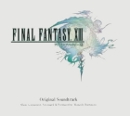
|
|
Toshiaki Sakoda
Note: This biography was written exclusively for Square Enix Music Online by Chris and is under copyright.
Despite not being an especially well-known composer, Toshiaki Sakoda has continually demonstrated the ability to evoke a variety of atmospheres in his diverse scores. He first came to attention with the score to 1989's Aleste 2 for MSX and subsequently worked on GG Aleste for the Game Gear and M.U.S.H.A. (aka Musha Aleste) for the Mega Drive. Other early scores included Devil Crash, Alien Crush, Xevious: Fardraut Saga, Cyber Knight, and Dragon's Fury.
1996's Treasure Hunter G is one of Sakoda's most well-known works. Developed by Sting and published by Square, it essentially concluded the role-playing era of the Super Nintendo, featuring a sweeping pseudo-orchestral score with lots of well-driven action pieces. Sakoda took a limited role, principally responsible for a series of short tracks, including one collaboration with the score's leader, Mitsuhiko Tanaka. The score's other contributors were Hitoshi Sakimoto, Masaharu Iwata, Yoko Takada, Akiko Goto, and Tomoko Matsui.
Sakoda's other projects have demonstrated close links to Iwata, Sakimoto, and Tanaka. He and Tanaka worked together on the ASCII Corporation's Solid Runner, published on the Super Nintendo in 1997. Also a contributor to a number of other Sting-related projects, he has produced a series of short but diverse tracks for Iwata's score to Baroque, joined him again on Evolution and Evolution 2, and, most recently, arranged for 2005's Riviera ~The Promised Land~ Full Arrange Soundtrack.
List of Relevant Game Projects
| Year | Game / Role | Console |
| 1996 | Treasure Hunter G (Sting / Square) Composition with Mitsuhiko Tanaka, Hitoshi Sakimoto, Masaharu Iwata, Yoko Takada, Akiko Goto, Tomoko Matsui |
SNES |
List of Covered Albums
| Album Title | Catalog No. |
| Baroque Original Soundtrack | SSCX-10021 |
| Devil Crash / Alien Crush | TKCA-30097 |
| Treasure Hunter G Original Sound Version | PSCN-5051/2 |

